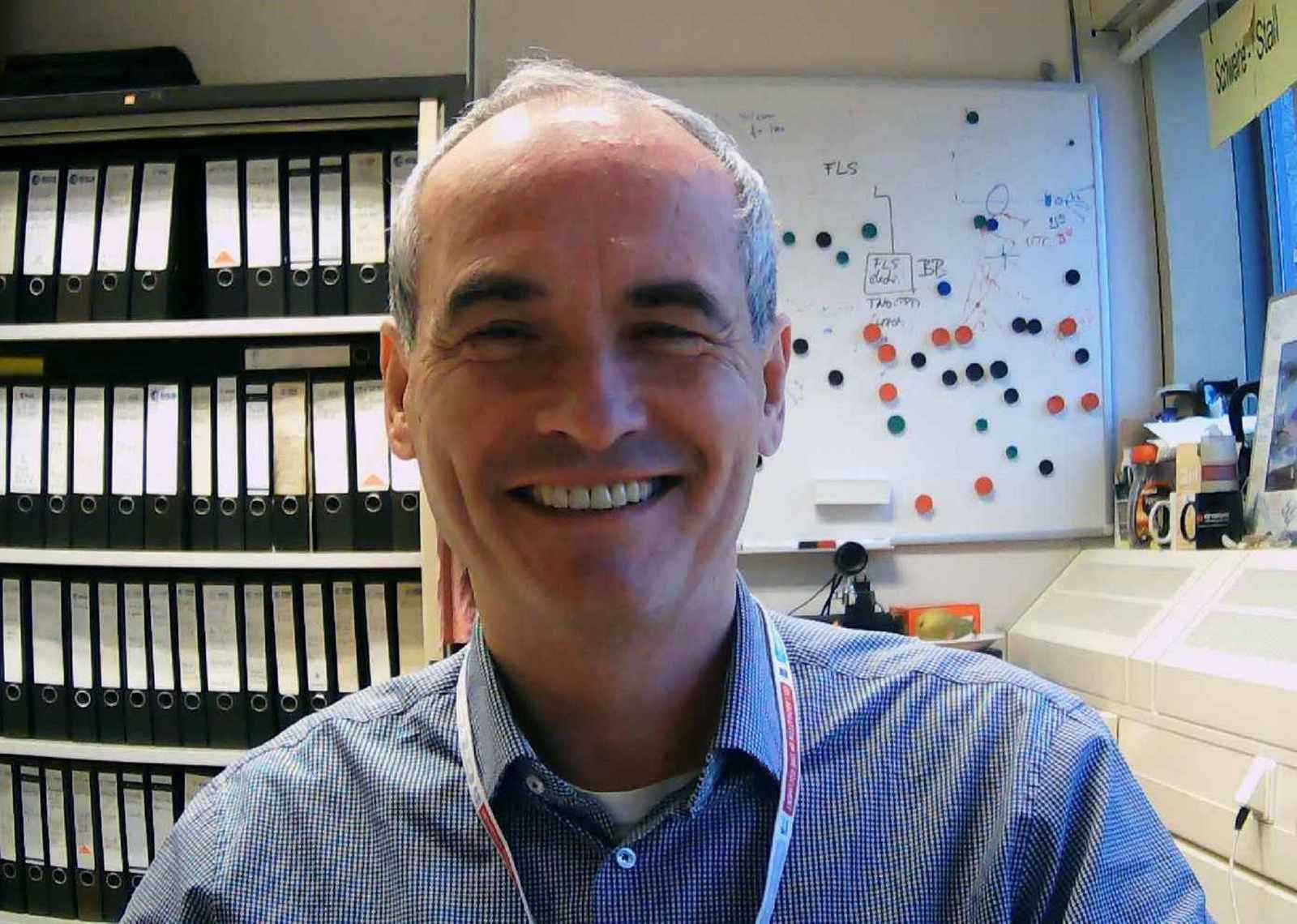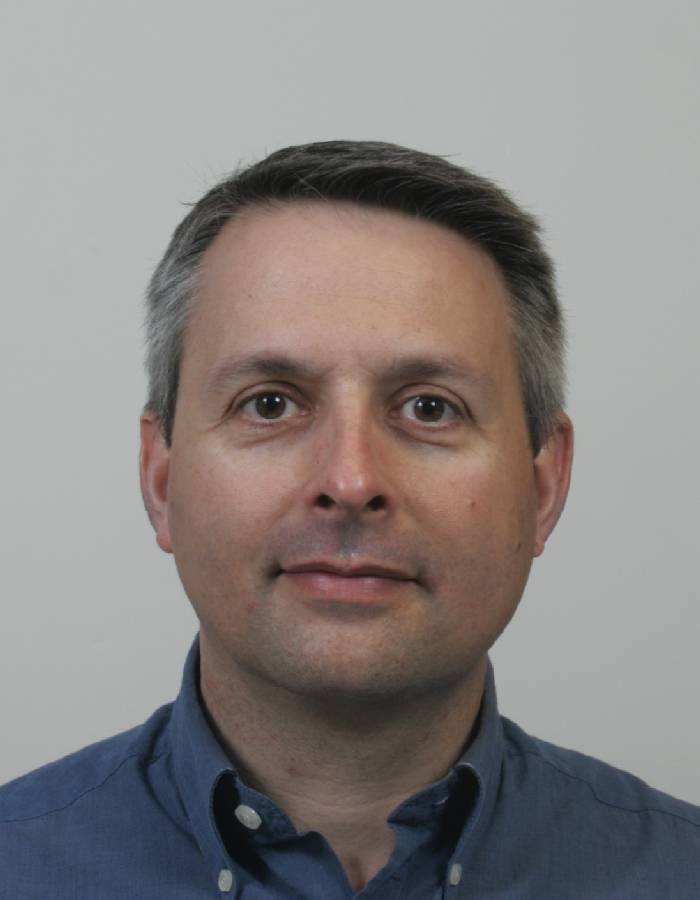Course Director

Claudia Anita Maria Fiorentino started her career in the space sector joining Alenia Spazio spa (ALS now Thales Alenia Space Italia) where she has held different positions in the field of Satellite AIV/AIT working 12 years in several GEO and LEO TLC satellite projects (SICRAL, Globalstar, ARTEMIS, Italsat FM2), and LOE OE projects such as Radarsat-2 and PRIMA, the TAS “Common Platform” for LEO Earth Observation programmes. She joined the Italian Space Agency (ASI) in 2006 where she has been involved in the Cosmo-SkyMed integrated ASI/It-MoD Programme Office as E2E System Verification Manager of the first generation and then Mission Manager of the Cosmo-SkyMed Second Generation Programme. At ESA since 2017 as Senior Satellite System Development Engineer in the Directorate of Connectivity and Secure Communications (CSC), she is also currently the CSC Directorate Security Officer.
Course Director
 Martina is the implementation manager of the EURIALO project of the Connectivity and Secure Communications (CSC) directorate at the European Space Agency (ESA), aiming at designing and demonstrating the first satellite-based independent aviation surveillance system.
Martina is the implementation manager of the EURIALO project of the Connectivity and Secure Communications (CSC) directorate at the European Space Agency (ESA), aiming at designing and demonstrating the first satellite-based independent aviation surveillance system.
She also covers the role of system engineer of the Iris programme where, since 2018, she has been responsible for all the system aspects concerning Iris project implementation, targeting the development of a satellite-based communication system for Air Traffic Management (ATM) and the design of its long-term evolution.
Martina joined ESA in 2010 in the Communication systems and techniques section of the RF Payload system division, Technology, Engineering and Quality Directorate where for more than 8 years she has been responsible of many Advanced Research in Telecommunications Systems (ARTES) projects, focusing on high throughput satellite systems end-to-end performance, successfully developing technologies to improve Satellite Communications and contributing to the related standards.
Martina received her M.S. degree, in Telecommunication Engineering from the University of Pisa, Italy, in 2008. Before joining ESA, she worked at M.B.I. s.r.l., a telecommunication company in Pisa, as a communication system engineer.
Course Director
 Daniele Dequal is System Engineer for the EuroQCI program of the Connectivity and Secure Communication Directorate (CSC) at the European Space Agency (ESA).
Daniele Dequal is System Engineer for the EuroQCI program of the Connectivity and Secure Communication Directorate (CSC) at the European Space Agency (ESA).
Since 2013, Daniele has been active in the research field of satellite quantum communication, formerly at Padua University and subsequently as a researcher at the Italian Space Agency. During this 10 years of activity he participated in the first experimental demonstration of satellite-to-ground quantum communication, the first single photon transmission from MEO orbit and later from GNSS orbit, and to the development of the first Italian Quantum Key Distribution (QKD) receiver for satellite applications.
In 2023, he joined ESA as a System Engineer working for the IRIS2 program first (Infrastructure for Resilience, Interconnectivity and Security by Satellite) and later SAGA (Security And cryptoGrAphic mission) and EuroQCI (European Quantum Communication Infrastructure) as a QKD expert.
Daniele received his MS in Physics at the University of Padua in 2009 and his PhD in Physics at the University of Padua in 2013.
Speaker

Dominic O’Brien is a Professor of Engineering Science at Oxford and leads the optical communications group. He is the Director of the UK National Hub in Quantum Computing and Simulation. He has a range of experience in optoelectronics research in industry and academia, and has authored or co-authored more than 200 publications in this area. His group has a wide range of experience in free space optical communications and optical wireless.
Speaker
 Dr Zoran Sodnik is the ScyLight optical communication technology manager in the Connectivity and Secure Communications (CSC) directorate. ScyLight is a dedicated funding scheme for optical communication, quantum key distribution and photonics technology developments.
Dr Zoran Sodnik is the ScyLight optical communication technology manager in the Connectivity and Secure Communications (CSC) directorate. ScyLight is a dedicated funding scheme for optical communication, quantum key distribution and photonics technology developments.
Zoran joined the European Space Agency (ESA) in 1993 as senior optical engineer, managing R&D activities, supporting ESA programs and developing optical communications technologies. He supervised the implementation of ESA’s first optical ground station in Tenerife, Spain.
In 2013, Zoran became head of the Optoelectronics Section dealing with the development of optical detectors, laser systems, photonics systems, quantum technologies, LIDAR and optical communication systems. In 2020, he joined the CSC directorate, managing the implementation of ScyLight work plan activities.
Speaker
 Nicolas Le Gallou has twenty-five years of experience as RF Payload, Optical Systems Engineer for Space Systems at ONERA (France), Thales Alenia (France) and ESA.
Nicolas Le Gallou has twenty-five years of experience as RF Payload, Optical Systems Engineer for Space Systems at ONERA (France), Thales Alenia (France) and ESA.
Nicolas has worked on several large projects, such as Galileo (Giove-B, IOV and FOC), AlphaS, AT, Gaia, EDRS and QKDSAT. He has also initiated, managed and patented R&D activities related to RF power amplifiers.
In 2012 he joined the EDRS project first in charge of EDRS-A and EDRS-C payloads, and then as System Engineering Manager, leading the group in charge of end-to-end system design, ground segment and operations, deeply involved in both RF and Optical ISL developments.
Since 2020, Nicolas has been the project manager for QKDSAT leveraging Quantum Laser Optical technology for the delivery of encryption keys via satellite.
Speaker
Dr Christopher Vasko currently works as a Quantum and Innovation Engineer at the European Space Agency (ESA). He combines expertise from engineering, academia, and international organisations to excel as a high-calibre generalist. At ESA, he supports the development of optical and quantum technologies for space applications, such as in next generation optical satellite networks, driving technical projects and strategic initiatives across multicultural teams. He has worked on projects in AI, Quantum Key Distribution and high speed optical satcom systems.
Christopher has a PhD in Applied Physics from Eindhoven University of Technology, focussed on applications of cold atmospheric pressure non-equilibrium plasmas to advance sustainable industrial processes. His contributions extend beyond academia, with roles at ESA involving strategic advice, market analysis and policy development. Dr Vasko has a great passion for STEM education and collaboration in the space sector.


 Martina is the implementation manager of the EURIALO project of the Connectivity and Secure Communications (CSC) directorate at the European Space Agency (ESA), aiming at designing and demonstrating the first satellite-based independent aviation surveillance system.
Martina is the implementation manager of the EURIALO project of the Connectivity and Secure Communications (CSC) directorate at the European Space Agency (ESA), aiming at designing and demonstrating the first satellite-based independent aviation surveillance system. Daniele Dequal is System Engineer for the EuroQCI program of the Connectivity and Secure Communication Directorate (CSC) at the European Space Agency (ESA).
Daniele Dequal is System Engineer for the EuroQCI program of the Connectivity and Secure Communication Directorate (CSC) at the European Space Agency (ESA). 
 Dr Zoran Sodnik is the ScyLight optical communication technology manager in the Connectivity and Secure Communications (CSC) directorate. ScyLight is a dedicated funding scheme for optical communication, quantum key distribution and photonics technology developments.
Dr Zoran Sodnik is the ScyLight optical communication technology manager in the Connectivity and Secure Communications (CSC) directorate. ScyLight is a dedicated funding scheme for optical communication, quantum key distribution and photonics technology developments. Nicolas Le Gallou has twenty-five years of experience as RF Payload, Optical Systems Engineer for Space Systems at ONERA (France), Thales Alenia (France) and ESA.
Nicolas Le Gallou has twenty-five years of experience as RF Payload, Optical Systems Engineer for Space Systems at ONERA (France), Thales Alenia (France) and ESA.